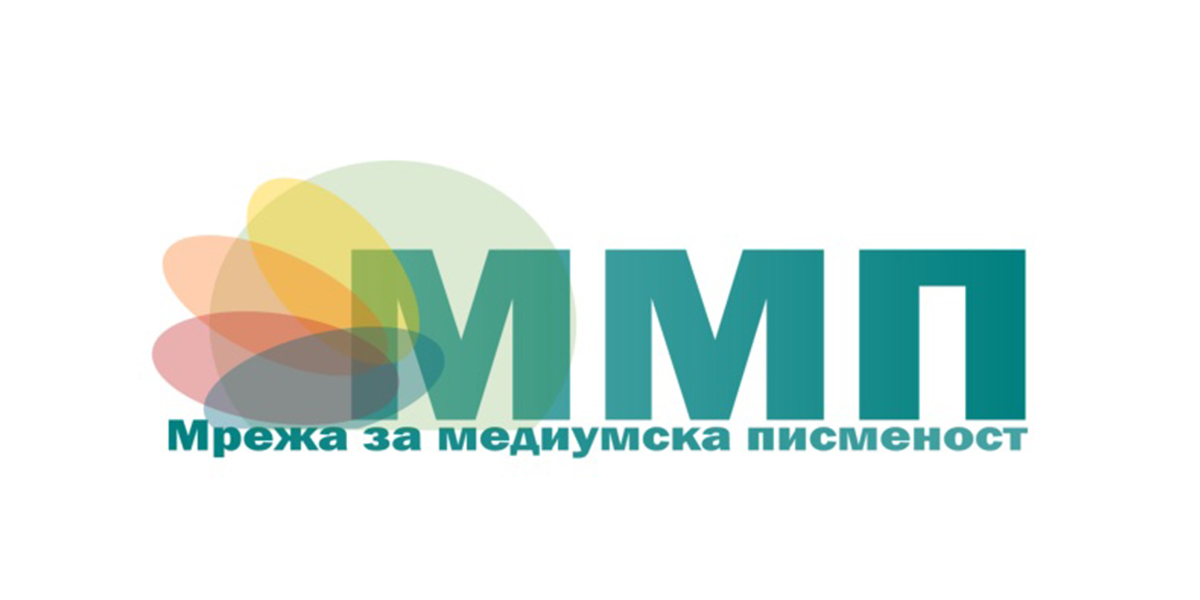On 31 October 2023, at 13:00 hrs, the Media Literacy Network held its annual meeting in the premises of the Agency for Audio and Audiovisual Media Services. The meeting rounded off the programme of the 2023 Media Literacy Days, as an already established tradition at the end of this annual event.
The meeting was attended by Emilia Petreska-Kamenjarova (AVMU), Sasho Bogdanovski (AVMU), Viktor Stojanov (AVMU), Marina Trajkova (AVMU), Ivana Stojanovska (AVMU), Zoran Bogatinov (MRTV), Dejan Dokuzovski (IREX), Daniela Stankovska – Plachkovska (Film Agency), Snezhana Trpevska (RESIS), Vesna Nikodinovska (MIM), Frosina Krushkarovska (EuroThink), Ana Cvetkovska (MIA), Boris Kunoski (MIA) and Biljana Georgievska (CMEM).
Network Coordinator Emilia Petreska-Kamenjarova led the meeting, together with two other members of the Coordinating Body – Snezhana Trpevska (RESIS) and Vesna Nikodinovska (MIM).
The meeting began with a screening of the short documentary that had been produced to mark the fifth, jubilee, edition of the Media Literacy Days, which summarized some of the more important activities carried out as part of the MLD in the past years. After the screening, the participants in the meeting, who are members of the Network, shared their impressions regarding the organization and the events that took place as part of the programme of this year’s MLD.
Sasho Bogdanovski of AVMU initiated the discussion by noting the decrease in the Network’s work groups’ activity and the possibility that there may be a need for their reorganization. Snezhana Trpevska of RESIS added that this possibly stemmed from the informal nature of the Network, and additionally opened the topic of the existence of certain vulnerable groups of citizens who were completely left out from the digital sphere, such as the persons with sensory disabilities and the elderly citizens, and that this was one of the topics that the Network’s groups could work on.
In the context of adapting media content to people with sensory disabilities, it was highlighted that, starting from this year, the promotional materials for the Media Literacy Days had also been translated into the sign language, and that AI-assisted translation tools, originally intended for people with sensory disabilities, had been used at the event.
Coordinator Emilia Petreska-Kamenjarova conveyed the proposals from the Network Member Zoran Zlatkovski of VEZ (who could not attend in person, but had sent his proposals electronically) to create a newsletter about the activities of the Network at certain intervals, to have the Education Development Bureau develop a media literacy curriculum for the secondary education and share it on the website, and to enable the participation of his students from the “Kocho Racin” High School in Skopje in the media literacy-related shows on the MRT.
This raised the issue of the process of introducing media literacy in the education and, in this regard, Dejan Dokuzovski from IREX explained that handbooks for grades 1 to 5 had already been prepared, while the handbooks for grades 6-9 were currently under preparation, but that there were no textbooks covering the educational curricula for secondary education. The reason for the slow progress in this area, specifically at the Bureau of Education, is the fact that the media literacy framework for primary education is almost completed, with the exception of the framework for the grades eight to nine, while the media literacy framework for secondary education was pending certain legal amendments and revision of the curricula. It is expected to be finalized in the course of next year.
Vesna Nikodinovska from MIM informed the attendees that an initiative had been taken to establish media clubs in the secondary schools as an extracurricular activity, and that the introduction of media literacy in the education was a long-term process on which the Network’s Work Group for Formal and Informal Education could continue to work.
Daniela Stankovska-Plachkovska of the Film Agency explained the previous activities of the Film Literacy Work Group and the activities of the Film Agency in this sphere, and spoke about the possibility of using film in the process of education and provision of media literacy.
Emilia Petreska-Kamenjarova shared the information that AVMU, IREX and the “YouThink” project were preparing, with the support of the Ministry of Education, a research to assess the level of media literacy among first- and second-year high-school students, so that, when this process would be completed, a joint event dedicated to this topic could be organized.
It was concluded that the members of the Network needed to be more active, to use the mailing group more often to share information about their activities, and to intensify further cooperation among themselves, as this was key to the Network’s development.
The meeting was rounded off with the address of Ana Cvetkovska from MIA, who emphasized the importance of the media following the Network’s activities and participating in their promotion.





